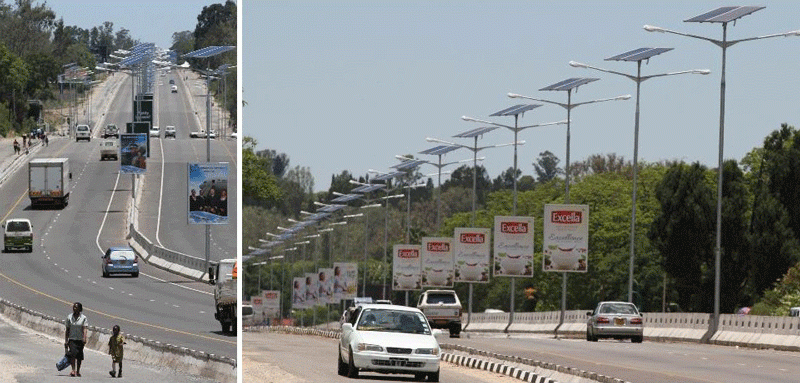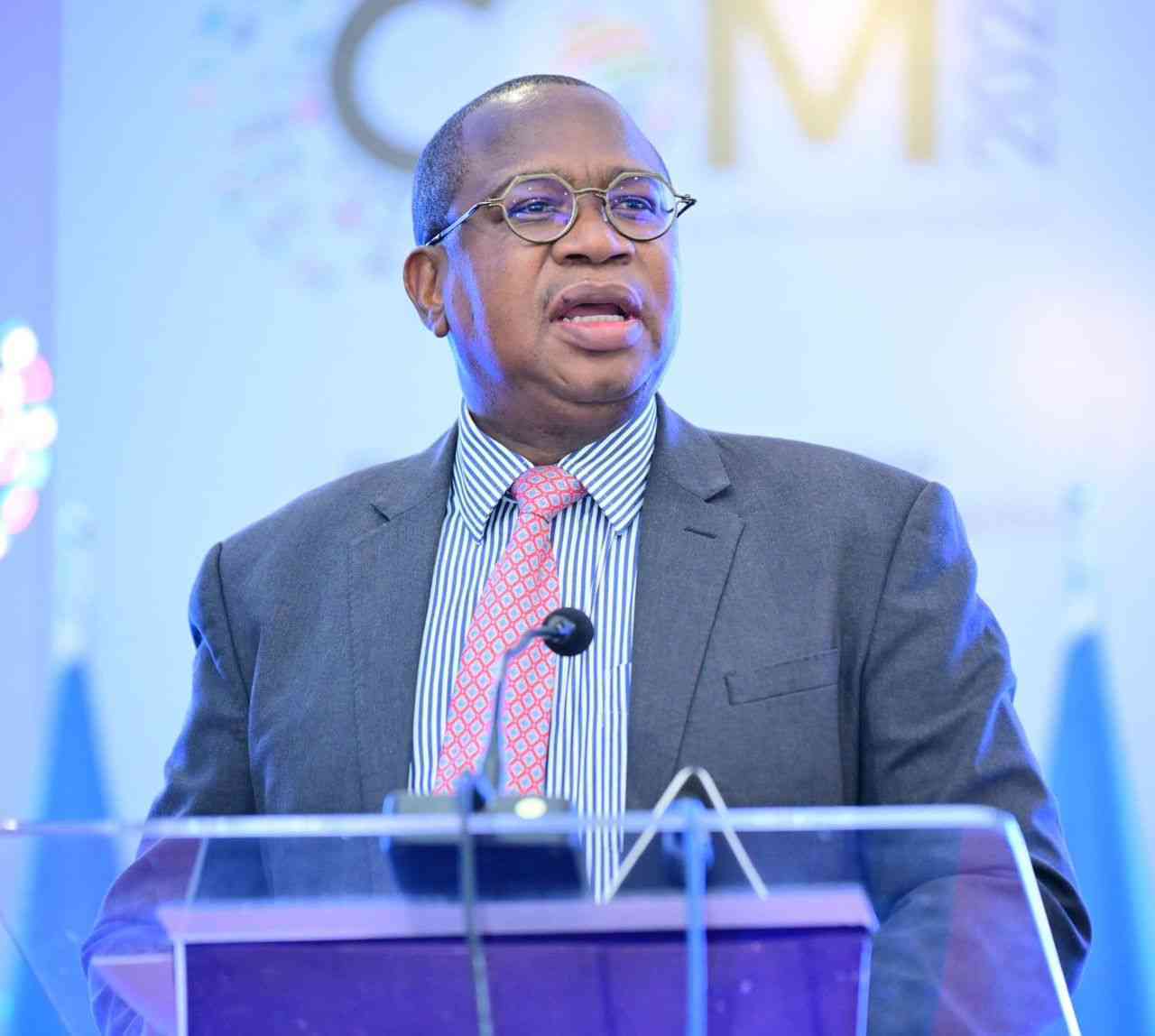
Several media reports, including some that have appeared in this publication, have had the effect of misleading the public about the circumstances surrounding the Airport Road deal involving Augur Investments and the City of Harare.
The effect of these reports has been to create the impression that Augur was the beneficiary of a corrupt deal, having failed to complete the road in question and then, unjustly and through corrupt means, acquiring the land that was the consideration for the transaction.
The claim that our CEO, Kenneth Raydon Sharpe, corruptly deprived the Harare City Council of more than 200 000 hectares of land was especially egregious and was widely reported after claims by former Finance minister Tendai Biti.
The contradictions are self-evident given that Harare is only 94 000 hectares in size.
The claims are not improbable but, in fact, impossible. This raises questions about Biti’s motive in propagating this patent falsehood.
The facts are that Augur received 270 hectares of land from the City of Harare in circumstances that are a matter of public record and in no way corrupt or improper.
Indeed, the arbitral award in favour of Augur against the City of Harare was neither corrupt nor improper.
There was nothing corrupt in the High Court ruling that endorsed that arbitral award.
- Rampaging inflation hits Old Mutual . . . giant slips to $9 billion loss after tax
- Monetary measures spur exchange rate stability: RBZ
- HCC considers cancelling ZimPhos contract
- Zim deploys IMF windfall to horticulture
Keep Reading
Most importantly, there was nothing corrupt in the Supreme Court ruling that dismissed an appeal in which Biti’s clients sought to challenge our title to that land.
The Supreme Court appeal was so grossly inadequate, being without basis in fact or law, that it was struck off the roll with costs awarded in West Property’s favour.
It is curious that Biti has not made any adverse comments as regards this legal process.
Instead, he has relied on hyperbole and innuendo to cast aspersions as part of what increasingly appears to be a smear campaign.
We mistakenly assumed that these falsehoods would come to naught, as they were without basis, and decided not to dignify the smears with a response.
However, it has become apparent that silence is not always golden.
Biti has exploited his public and political profile to misrepresent the matter to an extent that now threatens the confidence of our commercial partners.
This interference with our legitimate business interests has made it necessary for us to engage, pound for pound, to expose these malicious falsehoods for what they are.
Even though the editor has been kind enough to let us publish our position, space constraints prevent us from providing a full narrative. However, the essential facts are laid out below.
In 2007, Augur and the City of Harare executed a Memorandum of Understanding for the development and improvement of the Joshua Mqabuko Nkomo Expressway (Airport Highway Road).
On May 29, 2008, the Council passed a resolution authorising the transfer of land suitable for commercial property development as payment to Augur.
On August 29, 2008, the Zimbabwe Investment Authority granted approval for a joint venture between the two, this being Sunshine Development (Pvt) Ltd.
In 2009, Augur sought authorisation from the Reserve Bank of Zimbabwe to acquire a 100% stake in West Property.
This was granted on September 13th, 2009.
The Ministry of Finance informed the Permanent Secretary of Local Government, Rural and Urban Development via a letter dated April 29, 2009, that Cabinet had granted Augur National Project Status to the Airport Highway Project. Consequently, both the Council and the government, in which Biti was serving at the time as minister of Finance, approved the project.
His assertion that the contract was illegal is so contradictory as to betray his malice.
Equally unfounded is the claim that land payments made by the City of Harare were fraudulent.
There are three material aspects: (1) payment for completed work, (2) a contractual dispute that arose between the City of Harare and Augur, and (3) the unilateral cancellation of the contract by the Government of Zimbabwe.
On the first aspect, Augur submitted interim payment certificates for assessment through a contractually agreed independent engineering evaluator.
Following assessment, these payment certificates were then sent to the City of Harare for payment of the pro rata portion of the land.
Therefore, claims that the land was illegally acquired are therefore baseless and motivated solely by malice. Augur was paid for work that was duly completed.
The second aspect relates to the City of Harare’s breach of contract, which resulted in Augur incurring costs.
Specifically, the land that was provided for consideration was not suitable for the intended purpose of commercial property development.
The land was unzoned, depriving it of any immediate commercial value. This violation exposed Augur to significant financial risks.
Indeed, it took over 10 years for zoning permits to eventually be acquired.
Some of the land was situated on wetlands and was subsequently declared as such.
Despite the evident urgency of these violations, the City of Harare took no corrective action.
Instead, it attempted to blame Augur for the resulting delays and to terminate the contract.
Naturally, Augur exercised its rights and took the matter to arbitration, resulting in an award in its favour.
This was registered by the High Court.
The third aspect relates to the unilateral cancellation of the contract by the government.
The contract clearly stipulated the terms governing cancellation. Specifically, the infringing party would first have to be placed on terms to remedy the alleged breach.
Augur was not presented with such terms, nor was a violation specified; therefore, the cancellation was unilateral.
Augur naturally challenged this cancellation through litigation. In the end, the dispute was resolved amicably through a deed of settlement, which was subsequently registered as an order of the Supreme Court under SC878/19 and as an order of the High Court under HC458/19.
It is common practice for litigants to reach a settlement, and courts accept such agreements.
There is no basis for alleging that the settlement was improper when all parties to the lawsuit agreed to it.
Indeed, it is absurd to suggest that Augur was in cahoots with the government, given that the government unilaterally cancelled the contract against Augur’s wishes, resulting in legal action.
Those are hardly the actions of alleged conspirators.
If the government desired to extend unwarranted generosity to Augur, it could do so through a variety of trouble-free mechanisms as it possesses broad discretion.
Was Augur’s submission of payment certificates for completed work and receipt of the agreed-upon land in lieu of cash payment corrupt? Of course not.
Was Augur corrupt in bringing legal action against the City of Harare after it sought to terminate the contract yet it was the party in breach?
The suggestion is absurd.
Was Augur corrupt in challenging the unilateral cancellation of the contract by government contrary to the explicit terms of the agreement?
Clearly not.
Biti’s malicious attempts to contest our title to the Pomona land have been litigated to their natural conclusion, having been resolved by the Supreme Court in Case 229/22.
He lost the matter and was ordered to pay our legal costs.
These are the facts.
Michael Chideme is the West Property public relations manager










